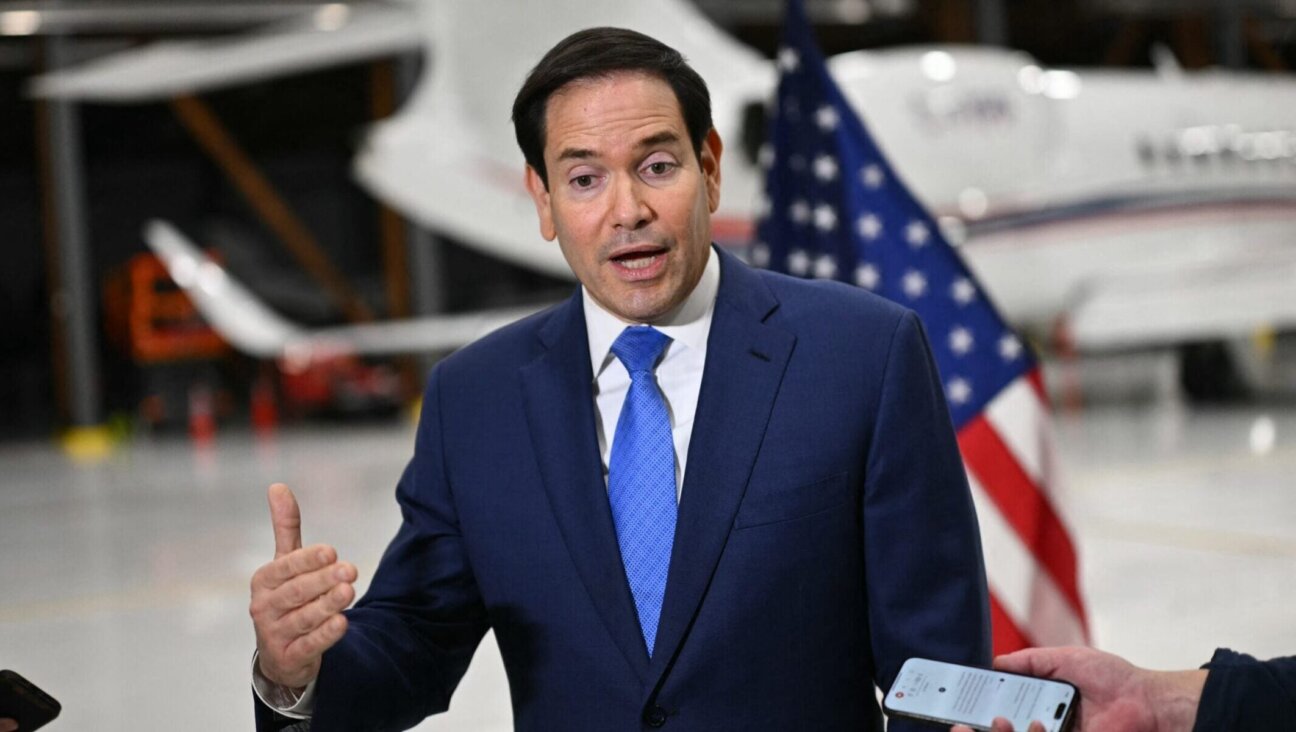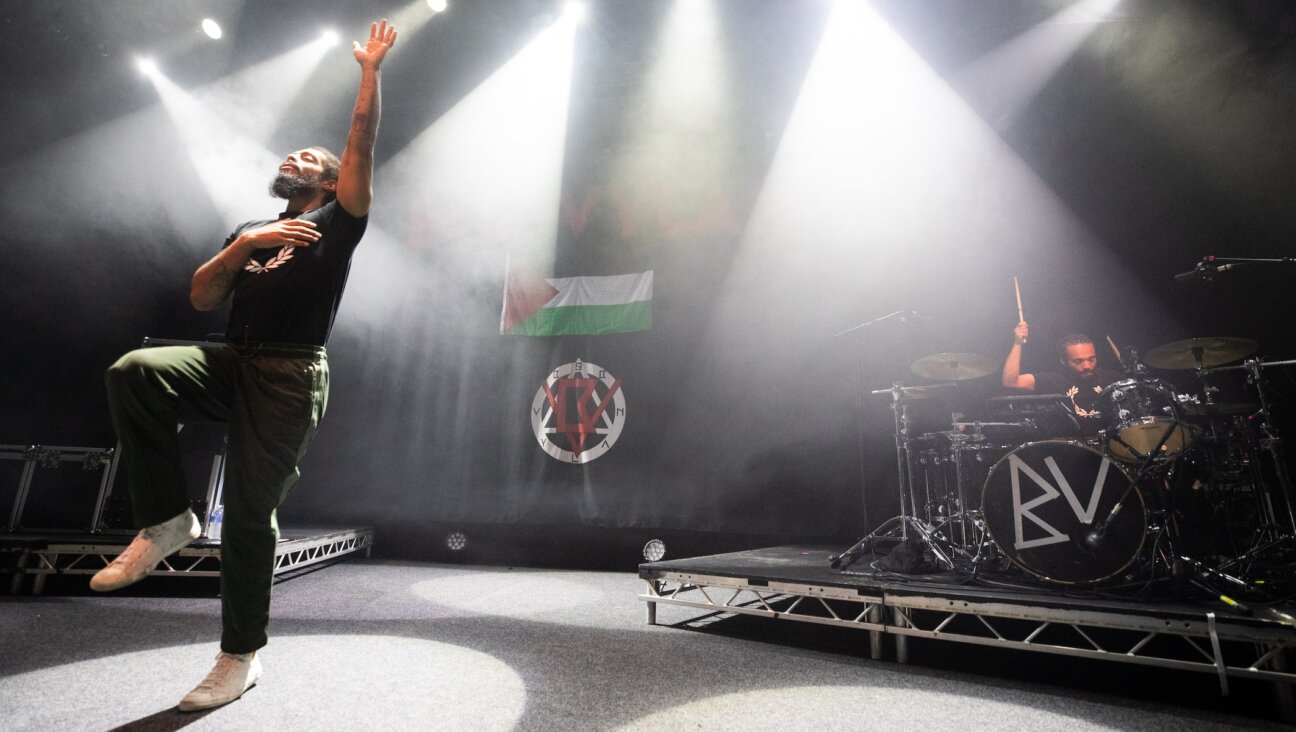President Obama Calls Elie Wiesel ‘Conscience of the World’ as Israel Mourns

Image by Getty Images
Holocaust survivor and Nobel laureate Elie Wiesel was “the conscience of the world” and a “living memorial” who compelled humanity to act in the face of suffering, President Barack Obama said on Saturday.
Wiesel, a prolific author, died Saturday at the age of 87. Wiesel was perhaps best known for his major role in promoting Holocaust education, and for perpetuating the memory of the Holocaust in the post-World War II era with his memoir “Night,” based on his experience as a teenager in the Auschwitz concentration camp.
“He raised his voice, not just against anti-Semitism, but against hatred, bigotry and intolerance in all its forms,” Obama said. “He implored each of us, as nations and as human beings, to do the same, to see ourselves in each other and to make real that pledge of ‘never again.’”
Obama recalled his visit in 2009 to the Buchenwald concentration camp with Wiesel and said he was honored to have called him a friend. He praised Wiesel for acting to bear witness in a way that changed the world.
“Just imagine the peace and justice that would be possible in our world if we all lived a little more like Elie Wiesel,” Obama said.
Earlier, French President Francois Hollande lauded Wiesel as “a grand humanist, tireless defender of peace.”
“This universal man had a special relationship with France, where he studied after the war, where he published the first edition of ‘The Night’ thanks to Jerome Lindon, where he created the Universal Academy of Cultures in 1992,” Hollande said.
World Jewish Congress’ Ronald S. Lauder released a statement saying that Wiesel’s death is a loss of “the most articulate witness to history’s greatest crime.”
“Without Elie Wiesel in the world, it is up to every one of us now to stand up to the deniers,” Lauder said. |With his passing, we will all have to work a little harder because we will no longer have Elie to remind us of what happens when the world is silent and indifferent to evil. It is now our job, and that of our children and grandchildren, to pick up the baton and to relay Elie’s message of hope and peace to the world.”
Television and radio host Larry King bid Wiesel farewell as well. “I knew him well,” he said in a tweet. “He was a great man and a wonderful writer. Rest in peace.”
Israel’s leaders bid farewell to Wiesel.
“Elie, a wordsmith, gave expression by means of his extraordinary personality and his fascinating books to the triumph of human spirit over cruelty and evil,” Prime Minister Benjamin Netanyahu said in a statement. “In the darkness of the Holocaust in which our brothers and sisters perished – six million – Elie Wiesel served as a ray of light and a beacon of humanity that believes in the goodness of man.”
“Jerusalem, the eternal capital of Israel, symbolized to him our ability to lift ourselves up from the very bottom to reach new heights,” Netanyahu said. In his own statement, President Reuven Rivlin called Wiesel “a hero of the Jewish People, and a giant of all humanity.”
“His life was dedicated to the fight against all hatred, and for the sake of man as created in the image of God – he was a guide for us all,” Rivlin said.
Opposition leader Isaac Herzog said on Facebook that Wiesel’s books had made profound impact on him, and that these texts should be taught in schools in every school in Israel and around the world.
Former President Shimon Peres said “Wiesel left his mark on humanity through preserving and upholding the legacy of the Holocaust and delivering a message of peace and respect between people worldwide.”
“I had the honor and privilege to personally thank him for his numerous years of work and for saving the world from apathy when I gave him the Presidential Medal on behalf of the State of Israel,” Peres said in a statement. “May his memory be a blessing to us all.”
Wiesel, a Nobel Peace Prize laureate, was perhaps best known for his major role in promoting Holocaust education, and for perpetuating the memory of the Holocaust in the post-World War II era with his memoir “Night,” based on his experience as a teenager in the Auschwitz concentration camp.













